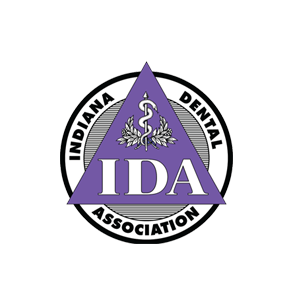Cavities & Tooth Decay
What is tooth decay?
Tooth decay is another name for the disease known as “caries,” or cavities. A cavity is the result of your tooth being destroyed over long-term exposure to harmful bacteria and other germs.
Cavities, while not life threatening and highly preventable, affect most people to some degree during their lifetime. Tooth decay is caused by your teeth being frequently exposed to foods rich in carbohydrates (starches and sugars) like soda pop, candy, ice cream, milk, and cakes. Ironically, even fruits, vegetables, and juices can lead to tooth decay.
When these foods break down in your mouth a colorless film is formed on your teeth and gums called plaque. This plaque, which contains bacteria, interacts with deposits left on your teeth from sugary and starchy foods to produce acids. These acids break down tooth enamel over time by dissolving, or demineralizing the mineral structure of your teeth. This leads to tooth decay and weakening of the teeth.
Cavity prevention
Saliva is your body’s best mechanism for fighting the destructive forces of acids formed by plaque. Saliva acts as a buffer and remineralizing agent. Sugarless gum is one way to stimulate the flow of saliva in your mouth between brushings.
The best way to prevent cavities is to brush and floss on a regular basis. Fluoride, a natural substance which also helps remineralize the tooth structure, is used in community water systems and is a main ingredient of many types of toothpaste. If you are at medium to high risk for cavities, your dentist may recommend special high concentration fluoride gels, mouth rinses, or dietary fluoride supplements.
Common symptoms of a possible cavity may include
A painful toothache
Higher sensitivity in your teeth to hot or cold temperatures, liquids, or food
The presence of decay such as white spots
Tooth discolorations
Often, people develop cavities without any pain or other symptoms. That is why it is so important to schedule regular, routine visits with your dentist.
Baby bottle tooth decay
Baby bottle tooth decay occurs in infants and can destroy the teeth if left untreated.
Baby bottle tooth decay occurs when sweetened liquids such as milk, formula, and fruit juice are given and left to pool in an infant’s mouth for long periods of time.
If a baby loses one of its primary teeth too soon, the teeth beside it may drift into the empty space, crowding the space occupied by permanent teeth later on. This could eventually lead to crooked or crowded teeth in adult life.
You should avoid allowing your child to fall asleep with a bottle containing sweetened liquids. If you choose to allow your child to sleep with a bottle, water is a good, non-sweetened alternative; nighttime breast-feeding should be avoided after the first baby tooth begins to erupt. Drinking juice from a bottle should be avoided. When juice is offered, it should be in a cup.
Our Partners



